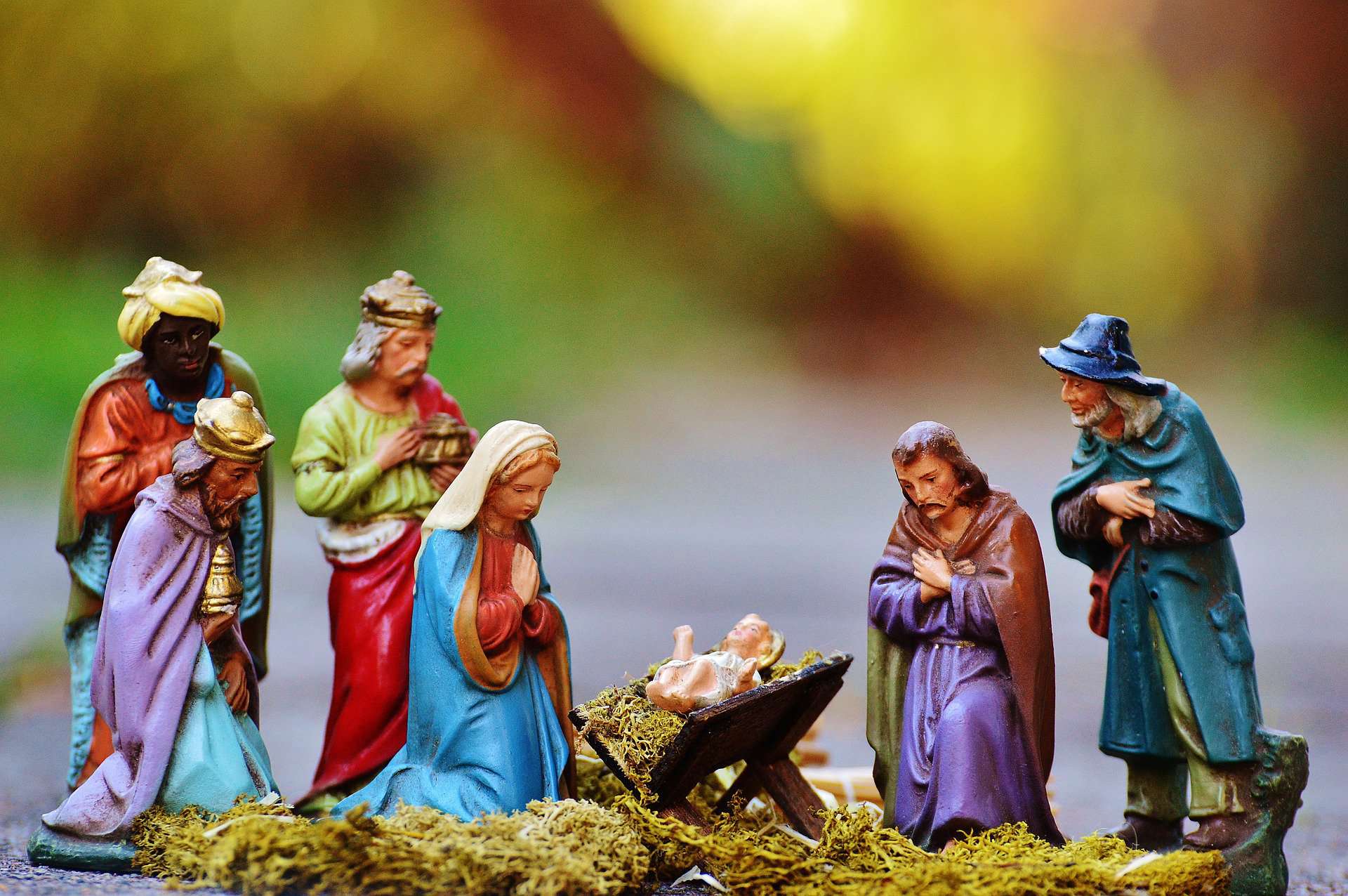Imagine it – a cozy creche with the shepherds, magi, and animals all in awe of the newborn baby. A joyful mother and father look tenderly upon their new son, Jesus. The star above shines brightly, welcoming the Christ. “Oh Holy Night” rises softly out of the reverent silence.
I’m struck by how often we romanticize the manger scene. This romanticization can easily make it more palatable and more comfortable, which also makes my prayer easier. But this romanticized version does not reflect the reality.
While I love the peacefulness and ease of the scene, I’m also uncomfortable about how it glosses over reality. Jesus was born into an incredibly broken situation – a mother who would be spurned for accused sexual immorality, a political leader who wanted Jesus dead, and the poor showing up front and center at the birth. I’m left wondering – what does it mean to have a real Christmas story? A Christmas story that is not romanticized, but speaks to this reality.
****
Here are several stories that speak to that Christmas reality:
- “Every day I live in fear.” My student was teaching the class about immigration and immigrant justice. “Every day I worry that I’ll come home and find only my sister there and learn that they’ve taken my parents. I worry that my sister, because she’s so young, will never get to love my parents.”
- So many women have shared their #MeToo narratives. “They’re just doing it for attention.” Students were in the fitness center discussing the #MeToo movement. “Sometimes we as men just can’t help ourselves.” I cannot fathom the number of women who have been told to brush off their hurt and their pain, told that their stories are invalid.
- Wade was waiting outside Walgreens, asking for spare change. Not having cash, I told him to come inside and grab a sandwich while I picked up some eggs. Wade shared about being from Orlando and how much easier winters were there, but how his desperation to find better work compelled him to move to chilly Milwaukee. He felt sad for not being able to better support his family.
Each of these stories points to different aspects of the true Christmas story: students who are afraid of losing their families to government officials; women whose stories go ignored; people in poverty trying to provide for their families. These are the Christmas stories I so often ignore out of convenience because they don’t fit my sanitized narrative. But I must reconcile myself to these stories and the people that live them.
****
Last year, the worldwide Jesuits gathered in a General Congregation. One of their main documents was “Decree 1: Companions in a Mission of Reconciliation and Justice.” The document spoke very directly to me: “Those who have all the necessities of life and live far from poverty also need the message of hope and reconciliation.” It further states that we must recognize the “call to share God’s work of reconciliation in our broken world.”
There are three types of reconciliation – with God, with community, and with creation. The first is a call to more fully experience the Gospel and life of Christ. In the second, “we hear Christ summon us anew to a ministry of justice and peace, serving the poor and the excluded and helping build peace.” In the third, we see that our “current economic system with its predatory orientation discards natural resources as well as people.”
Towards #Christmas.
“This will be a sign to you: You will find a baby wrapped in cloths and lying in a manger” (Luke 2, 12).#refugees pic.twitter.com/dWrONdyhdM
— Valerio De Cesaris (@ValerioDeC) December 15, 2017
This reconciliation calls for incredible depth, reflection, and a willingness to go beyond our own stories. It requires discomfort and an open heart. As we reach the end of Advent and start of Christmas, my desire for reconciliation forces me to abandon the comfortable and romanticized manger and to accompany those facing modern Christmas stories.
****
It can be easy to romanticize the Nativity, to sing “Little Drummer Boy” and imagine myself as a shepherd standing off to the side. The real story of Christmas, however, reveals the brokenness and heartache of our world. It reveals Jesus who came not to the powerful, but rather called the powerful to realize their need for reconciliation. The Nativity is a story that demands I reconcile myself to Christ, to the poor and oppressed, and to creation. Ultimately, Christ became incarnate to enable this reconciliation, destroy death, and establish justice in our world.
***
Image courtesy of pixabay.


